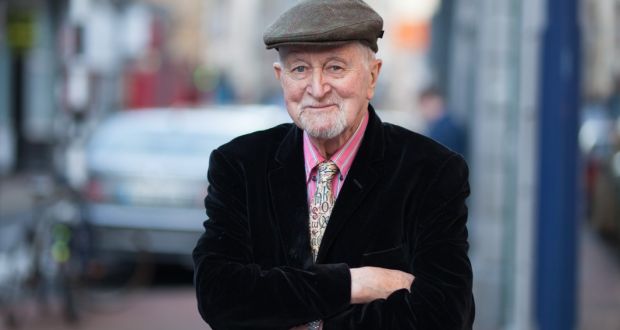About Being Normal: My life in Abnormal Circumstances
by Desmond Fennell (Somerville Press, €20.20 / £17.00)
This memoir provides an interesting account of the life and writings of Desmond Fennell, who has long been a striking voice in modern Ireland.
Fennell was born in Belfast in 1929. After attending the Christian Brothers’ O’Connell School and the Jesuits’ Belvedere College he graduated from UCD in 1950, completing an MA in the following year. Thereafter he began his peripatetic life by spending three years teaching in an Opus Dei school in Bilbao.
Determined to be a writer, Fennell went to live in Cologne, contributing to The Irish Times and The London Times while working for Die Deutsche Welle (German Worldwide Radio) translating news into English.
After a few years he set out on an extensive tour of the Far East. On his return he was commissioned by Hutchinson, the London publisher, to write a book on Sweden. At the time Sweden was notorious as an affluent and ‘pagan’ country that had broken with European norms, most notably in sexual matters.
His experiences during his Sweden year brought on a kind of philosophical conversion. His complacent assumption of the superiority of a liberal life-style was shattered as he surveyed angst-ridden and spiritless Swedish society.
Fennell was back in Dublin in 1961 employed as an Exhibitions Officer by the Arts Council and writing on art for The Evening Press and Hibernia. From 1964 to 1968 he was assistant editor of the English edition of the Herder Correspondence, a monthly Catholic journal of ecclesiastical affairs and general world affairs, living first in Freiburg and later in Dublin.
Involvement
Then, mainly because of his involvement in the Irish-language movement, he and his family settled on an island off the coast of Connemara. In 1982 Fennell was back in Dublin, where he lectured in the College of Commerce in Rathmines until he retired in 1993.
Next he dropped anchor in Anguillara, not far from Rome, before completing the circle and returning to Dublin in 2009.
When Fennell and his family settled in South Connemara, he with others energised the local parish.
This led him to be a key-figure in a movement which transformed the Gaeltacht areas in Donegal, Galway and Kerry. Among the movement’s achievements were the establishment of Raidió na Gaeltachta, followed by Telefís na Gaeltachta. He also proposed a detailed plan for those engaged in spreading the use of Irish. It was akin to that followed by the Israelis when they successfully established Hebrew as their nation’s vernacular.
Like most of his compatriots Fennell was greatly exercised by communal violence in Northern Ireland. In an influential newspaper column and numerous articles he proposed an equitable solution to the problem which is reflected in the terms of the Good Friday Agreement.
Fennell throughout his life was a firm believer in the importance of transparency and public discussion, was ever ready to join in debate on the most controversial issues and never shirked supporting unpopular causes.
He challenged the ‘group think’ of the Irish media establishment, the promoters of ‘social progress’ and the prevailing superficial culture. As a result, he became for the liberal elite their bête noire.
Fennell was unfazed by this response and it seems enjoyed his role as the little boy who pointed out that the emperor had no clothes. To this day his commentary on cultural and social developments in the West are never other than thought-provoking.
Fennell owes a debt of gratitude to the editor and designer of this book.
A remarkable autobiography, it is also a splendid showcase for some of his best and most influential writing over the decades of a strenuous career, lived largely for the intellect.


 Desmond Fennell
Desmond Fennell 